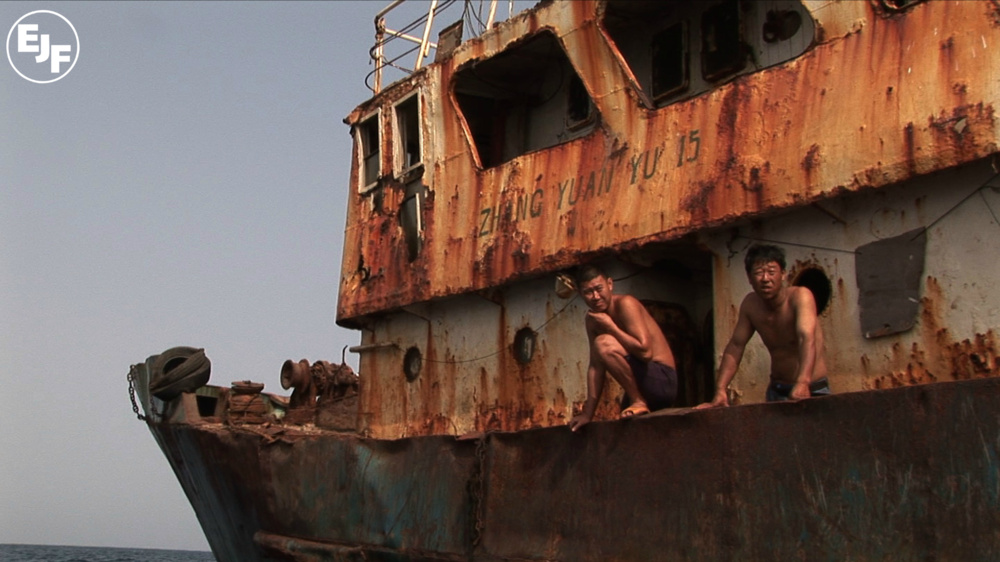
The need for transparency and traceability in our seafood supply chains
Imagine a vast motorway spanning nearly three quarters of the Earth’s surface, where only a fraction of the cars are registered, police coverage is next to non-existent and serious traffic offences routinely go unpunished. This will give you an idea of the challenges facing the world’s oceans today. A lack of oversight, capacity and political will have combined with profiteering and human malevolence to create a perfect storm, which has seen our oceans become a haven for criminality, piracy, violence and shocking abuse.
The vast majority of people are unaware of the almost complete lack of control that many flag, coastal and port States have over vessels flying their flag, fishing in their waters or unloading catches in their ports. More shocking still is the nature, severity and frequency of crime - including human rights abuses and extreme violence - that this lack of effective monitoring and control enables across the world’s oceans.
The nature of fishing makes the industry challenging to regulate - a boat covers vast areas, stays at sea for long periods of time and is an inherently dangerous place to work. Making these challenges worse is a lack of transparency and oversight. There are wide gaps in knowledge, particularly, accurate data on vessel numbers, crew and areas of operation. This is combined with the lack of a joined-up strategy for policing and enforcement.
As a result, criminals, pirates and unscrupulous operators are given an almost limitless sanctuary for illegal activity. In some regions, the fishing industry is characterised by extreme abuses such as torture and murder, slave-like working conditions and Illegal, Unregulated and Unreported (IUU) or ‘pirate’ fishing.
Pirate fishing is a lucrative crime worth as much as $23.5bn annually. It depletes fish stocks, destroys marine ecosystems and jeopardises the livelihoods of some of the world’s poorest people.
The decline in fish stocks caused by mismanagement and criminal activity forces operators to venture further out to sea for longer periods of time to catch enough fish, which in turn tends to increase their overheads for similar or even diminished economic returns. This pressure results in the need for cost cutting, and labour is often identified as one of the first areas where savings can be made. EJF has documented evidence of crew being underfed, unpaid, imprisoned on abandoned vessels, beaten, tortured, enslaved and murdered on fishing boats around the world. These cost pressures have also led to other forms of criminality, including the trafficking of people, drugs and other contraband such as diesel, as well as pirate fishing in other countries’ waters.
EJF’s Sold to the Sea and Slavery at Sea reports reveal systematic labour abuses and extreme violence carried out against trafficked migrant workers aboard Thai fishing boats, many of which were also fishing illegally. EJF’s 2010 All at Sea report also documented severe labour and human rights abuses occurring aboard boats fishing in Africa, Asia and other parts of the world. For example, around 70 nautical miles off the coast of Guinea, EJF discovered dozens of rusting trawlers, anchored and broken down, manned by one or two crew supplied with basic food and water every few months by supply ships. Many had no idea when they might be relieved – they had been left for months, and some reportedly for up to two years.
Such investigations show that there is a compelling and pressing need to build greater transparency and traceability into seafood supply chains. There is currently no comprehensive global register of fishing vessels, their owners or licenses, making it almost impossible to track the activities of any individual vessel. EJF is advocating for a Global Record of fishing vessels, including the mandatory use of International Maritime Organization (IMO) numbers as Unique Vessel Identifiers (UVI). Without these tools, pirate fishing vessels are free to operate ‘under the radar’ and without accountability, leaving our oceans at the mercy of their criminal actions.
SIGN UP FOR OUR EMAILS AND STAY UP TO DATE WITH EJF